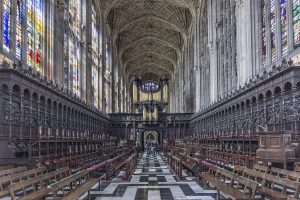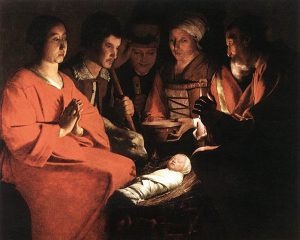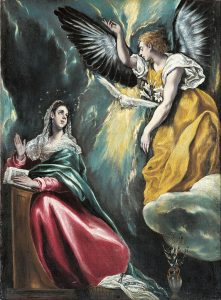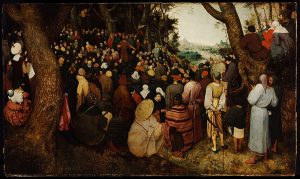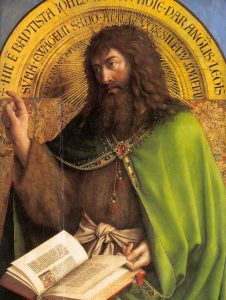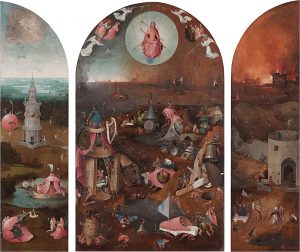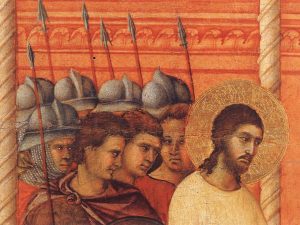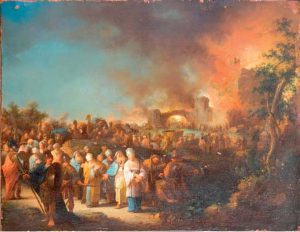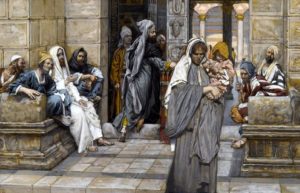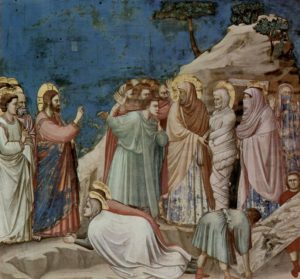Thoughts on the readings for Lessons and Carols (Dec. 26, 2021)
Lessons and Carols is a service of worship that celebrates the birth of Jesus with readings from Scripture, carols, and hymns.
Lessons and Carols originated at the Church of England’s Truro Cathedral in Cornwall in 1878, and since World War I has been famously presented (and broadcast) every December for the past century by King’s College, Cambridge, England, and Brown University in Providence, Rhode Island. The original service has since been adapted and used by other churches all over the world, not only in the Anglican and Episcopal traditions but in many other denominations as well.
The original liturgy consisted of nine scripture readings from Genesis and the Prophets. The current Episcopal liturgy in our Book of Occasional Services permits as many as nine readings, plus a Gospel.
These are the readings that St. Matthew’s Episcopal will use in Lessons and Carols on Sunday, Dec. 26, 2021.
Genesis 3:1-23
The happy time of Adam and Eve’s stay in the garden comes to an end in the ancestral origin story told in these verses: The serpent tempted them and they ate fruit that God forbade. When they heard God walking in the garden in the evening breeze, they realized that they were naked, and they hid, because they were afraid. When God found them, they blamed each other, and then they blamed the snake. Yes, God cast them out. But God came out with them, clothed them, and stayed with God’s people of free will and belief through the ages.
Isaiah 7: 10-15
Isaiah tells of God’s warning to David’s descendant, King Ahaz: His land will soon be conquered, but God will give the people a sign. A young woman will bear a child called Immanuel – “God With Us” – a child who will eventually show the world how to refuse evil and choose the good.
Luke 1: 5-25
In this passage we hear the back-story to Canticle 16, which we sang on the second Sunday of Advent: John the Baptist’s father-to-be, Zechariah, a priest of the Temple, refuses to believe an angel who came to tell him that his elderly wife, Elizabeth, had become pregnant after an angelic visitation. God struck him mute for his disbelief. He would remain unable to speak until eight days after the child’s birth, when Zechariah regained his voice to name the baby John.
Luke 2:1-20
We heard this familiar story of Jesus’s birth on Christmas Day. Now we hear again the unforgettable stories of Mary giving birth, wrapping the child in swaddling clothes and laying him in a manger in Bethlehem – the City of David – because there was no room in the inn. Here we have the beautiful scene of baby Jesus and his parents suddenly surrounded by shepherds and their flocks. Angels sing gloriously overhead while the Lord’s angel tells them that the baby is a Savior and the Messiah.
Hebrews 1:1-12
This poetic description of Jesus opens the letter to the Hebrews. Jesus, chosen as the son of God, is the perfect reflection of God’s glory, higher even than the angels. When Jesus was born, multitudes of angels appeared in the heavens to worship him. Because Jesus loved righteousness and hated wickedness, his throne is for ever and ever, and God speaks to us no longer through the prophets but through him.
John 1:1-18
“In the beginning … ” The first words of John’s Gospel exactly mirror the first words of Genesis: “In the beginning, when God created the heavens and the earth,” God’s Word, “Let there be light,” opened up creation. The Word of God that brought the world into being comes to us now as Jesus, the light through which we can see God. The Word was with God, and now lives among us.

